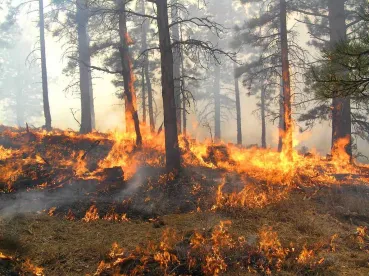Prior posts in this series have discussed insurance coverage issues that pertain directly to wildfire claims, but we have not yet addressed how one proceeds following a loss. In this post in the Blog’s Wildfire Insurance Coverage Series, we discuss the preparation, submission and negotiation of the insurance claim.
Preparing a Claim
As different policies provide different timelines, where possible, it is advisable to submit the claim as soon as reasonably possible. Insurers commonly cite late submission as a basis for denial with jurisdictions varying on the import of “late” submission.
Insurers have a right to reasonable documentation of a claim before paying. Often, they will decline to consider a claim on its merits until such documentation is provided. The policy will specify whether to submit a hard copy or file online, but either way, it is advisable to maintain a copy online or in a remote geographic location.
The level of detail required will depend on the insurer. Provide as much information as is available at the time the claim is submitted, including details of the items destroyed or damaged (photos and videos are helpful), estimates, and other documentation.
While some supplementation can be expected, back-and-forths associated with repeated insurer requests for more information may, unfortunately, take time. The sooner the insurer has the information it really needs, the sooner the policyholder will be in a position to resolve the claim and obtain payment. In certain situations, the insurer may be amenable to staging payments—where they have sufficient information while the policyholder gathers additional information for other areas.
While the insurance company must comply with its defined obligations, claims resolution is a negotiation. Throughout, credibility is vitally important for achieving the best possible settlement, so the policyholder should only claim what is reasonably entitled to.
Proof of Loss
Policies may contain a “Proof of Loss” provision, which requires the policyholder to submit detailed information in a form that they attest to within a specified number of days after the event which gives rise to the claim. Some insurance companies argue that this is a condition precedent to making any coverage claim and jurisdictions vary on the viability of this argument. In California, a policyholder has 60 days to submit a proof of loss, and to the extent there is any concern that this deadline cannot be satisfied (as if often the case with wildfire claims), requests to the insurer to extend the deadline are routinely granted.
California subscribes to what is referred to as the “notice-prejudice” rule, the Supreme Court holding that while the insurer may assert defenses based on a breach of a condition in the policy, “the breach cannot be a valid defense unless the insurer was substantially prejudiced thereby.”[1] This principle was addressed in the context of the Station Wildfire in Southern California where policyholders' failure to submit the requisite forms within the specified period supposedly prejudiced insurer’s ability to investigate smoke and soot damage.[2] The court rejected the insurer’s motion for summary judgment, holding that it was not prejudiced because the insured had cooperated with it and that the insurer had the opportunity to conduct its own testing.
Interacting With Adjusters Post-Claim
Insurers assert that they want to be a partner of the process and often are. Policyholders should assume the best of intentions and give insurers a chance to do the right thing, but should not confuse their friendliness for having a policyholder’s best interests at heart (notwithstanding the requirement that insurers must place the interests of the policyholder before their own).
Claim adjusters will try to help, but even the best are dealing with thousands of claims from individuals and businesses encountering the same devastating situation. It can be a blur for them too, so it is advisable to take careful notes of every communication and/or communicate in writing via email or letter to maintain a record as opposed to relying on phone calls. To build and support the relationship with the adjuster, the policyholder is best served by being empathetic and treating adjusters with respect, understanding the number of claims they are handling. Respond to reasonable requests for information as quickly as possible.
Some actions cannot wait. Businesses will want to get up and running again by hiring contractors and starting repairs or rebuilding. Insurers typically will understand and reimburse as required by the policy.
But when it comes to non-immediate actions, it is desirable to give insurers a reasonable opportunity to participate in the process. This is more than merely a matter of courtesy, partnering or strategies; many policies state the insured must seek the insurer’s approval to repair or replace anything. And if the policyholder does not attempt to secure the insurer’s advance consent, the insurer may refuse to pay for expenses “voluntarily” incurred.
Reading the Insurer’s Coverage Position
After the insured has submitted the claim, the insurer typically will provide an acknowledgment of receipt of the claim. Shortly thereafter, the insurer will provide a longer response identifying any additional information it needs to further evaluate the claim, and/or its position on whether the claim is covered. Read this communication carefully. What is the insurer agreeing to pay and what is it rejecting? Will it make an advance payment on agreed-to claims while other issues are being discussed/investigated? Is it leaving the door open for further payment upon receipt of more information?
The policyholder should attempt to provide as much of the requested information as reasonably possible. That said, some insurers may request more information than they legitimately need. It is advisable to attempt to reach out to discuss these requests and the burdens associated with compliance. All communications and agreements should be confirmed in writing.
If the insurer denies coverage for the claim or does not pay what the policyholder believes it should, the policyholder may want to seek the opinion of a lawyer who specializes in insurance recovery. The lawyer can review the insurer’s position, provide advice on rights and help negotiate with the insurer.
At some point in the claims process, the adjuster will make an offer. Sometimes this will fully compensate the policyholder for the loss. Other times the insurer will offer less, whether because they have missed something or require more detail; where available, the requested information should be provided or an explanation provided as to why it is unavailable. And on other occasions, it may offer less, hoping the policyholder will take its word regarding the claim value, or accept the offer because the policyholder needs the money. While it may seem inappropriate, recognize this is part of the process for many insurers. As difficult as it will be, think of it as a business negotiation—which it is for them. Acting out of anger can be counterproductive. Policyholders’ lawyers can be helpful in this process.
* * *
This is the seventh post in the Blog’s Wildfire Insurance Coverage Series.
*This post is an excerpt from an article written by Scott DeVries and Yosef Itkin that originally appeared in the Journal on Emerging Issues in Litigation published by Fastcase Full Court Press, Volume 2, Number 3 (Summer 2022), pp. 213-222 (a comprehensive list of all references is provided in the published journal version).
[1] Campbell v. Allstate Ins. Co. 60 Cal.2d 303, 305 (1963).
[2] Henderson v. Farmers Group, Inc. 210 Cal.App.4th 459 (2012).




 />i
/>i
